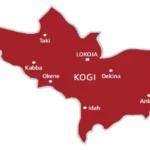Following recent discoveries of rehabilitation/torture centres across the country, the Chief Missioner of Nasru-lahi-l-Fatih Society (NASFAT), Imam Abdul-Azeez Morufu Onike, has said such centres where “dehumanizing” treatments were meted out to victims are not religious.
Onike urged Nigerians to look objectively at the issue of “the pseudo-private rehabilitation centres” which have been discovered by security agencies in Kaduna, Ilorin, and Lagos, among others.
In a statement made available to our correspondent in Lagos on Monday, he described the centres “as a manifestation of serious underneath socio-economic challenges bedevilling the nation.”
He said people should avoid giving religious colouration to “the disgusting discoveries.”
According to him, what makes the issue worrisome is that it cuts across regions and religions.
“The so-called rehabilitation centres had been discovered in the Northern parts of Nigeria, Daura, Katsina state and Kaduna in Kaduna state; in Ilorin, Kwara state and Southern Part of Nigeria at Ori-ofe Ijegun, Isheri-Osun in Lagos state.
“Therefore, no particular region should be labelled as the promoter of the practice,” he said.
He said, “The malaise does not discriminate religion even though most of the operators so far detected have been traced to a particular religion.”
He noted that the private rehabilitation/torture centre busted on Thursday 31st October, 2019 was said to be a Church belonging to a Pastor, while those in the North have been traced to some Madrassah schools.
Onike however insisted that Islam in particular forbids inflicting harm or injury on people.
He said, “It is a clear religious principle that harm must be eliminated. There should be neither harming nor reciprocating harm. We can never get cure from what is harmful,” adding that “Verily, God sent down the disease and the cure, and for every disease he made a cure. Seek treatment, but do not seek treatment by the unlawful.”
Onike stressed that the use of crooked and dehumanising means of correction of children “is not religious, but traditional, cultural and a manifestation of the urgent need to pay attention to various social justice apparatus and systems by government at various levels in our country where 50% of the population is exposed to mental illness.”

 Join Daily Trust WhatsApp Community For Quick Access To News and Happenings Around You.
Join Daily Trust WhatsApp Community For Quick Access To News and Happenings Around You.


